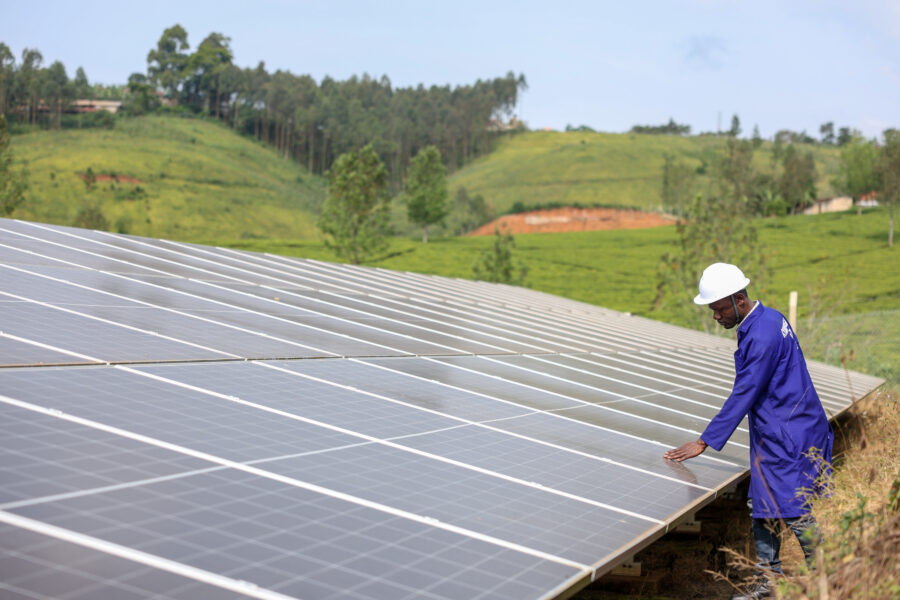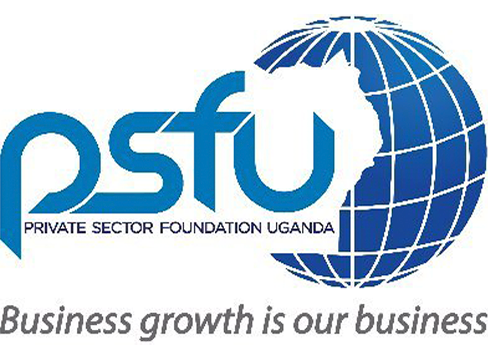BLOG: Making Every Watt Count for Sustainable Tea Processing in Uganda
August 31, 2025

The green tea fields of Western Uganda are a sight to behold. The morning air carries a refreshing scent of freshly plucked tea leaves, a signature aroma of a landscape rich in fertile soil. But beneath their beauty, a silent struggle brewed. Rising energy costs, unstable power supply, and the effects of climate change long threatened the very lifeline of local tea factories. However, two key players, Kyamuhunga Tea Company and Buhweju Tea Factory, stand out for their proactive approach to innovation and sustainability. Located along the hilly landscape in the Ankole sub-region, these two facilities pursued energy-efficient solutions to enhance operations. With support from the Inclusive Markets for Energy Efficiency in Uganda (IMEU) project, the tea companies are also pioneering an innovative Energy Service Company (ESCO) model in the tea sector, ultimately benefiting over 4,000 farmers in the region through more stable and improved prices for their green leaf.
Founded in 2013, Kyamuhunga Tea Company Limited (KTCL) gained recognition for its high-quality CTC black tea. Yet, even with a dedication to quality and employing over 800 workers, the factory faced significant challenges. In 2022, the outbreak of the Russia-Ukraine war severely impacted tea factories in Uganda, leading to more than 50% cut in the green leaf price. The green leaf price reduced from UGX600 (€0.14) to UGX200 (€0.048) per kilogramme. This price reduction brought uncertainty to farmers, as their once-flourishing crop struggled to provide for their families.
The socio-political landscape made it challenging for local tea factories to remain profitable. In 2022, the electricity tariffs for commercial consumers also increased by approximately 9.8%, rising from UGX.580.6 to UGX 637.7. For Kyamuhunga Tea Factory, relying on the national grid system proved financially burdensome. ‘Before our partnership with the SNV-IMEU project, we were paying UMEME [national grid] bills of over UGX 110 million (USD 30,000) in the peak season,’ explains Albert Bomukama, General Manager at Kyamuhunga Tea Company Limited. ‘We were also using quite a lot of firewood, and it was also having a bit of an impact on the environment.’ In the fertile tea-growing areas of Buhweju, a smallholder tea factory managed by its 7,000 farmers also faced similar issues. ‘Our energy cost in terms of electricity was over UGX 60 million (USD 16,000) per month, second to the cost of raw materials,’ shares Robert Nayebare, General Manager at Buhweju Tea Factory.

Confronted with these challenges, both facilities invested in energy-efficient technologies to enhance their operations. In 2023, the tea factories partnered with IMEU and subsequently installed a range of EE equipment. Kyamuhunga installed a 600 kWp Captive Solar PV system with battery storage, a 400 kVAr power factor correction to optimise electrical consumption, insulation and lagging of steam and condensate distribution pipes to tackle heat loss and a Variable Frequency Drive (VFD) at the Boiler ID fan integrated for precise control and energy savings in drying processes.
Buhweju Tea Factory (BTF) is already reaping the benefits of the installed EE technologies. ‘We are already saving up to 25% of our energy bill by running this solar plant," beams Robert. He explains, "We have installed here a 425-kW solar plant, which is synchronised with the national grid and the generator.’ This system, installed by Spenomatic Solar with Grips Energy (German) acting as the Energy Service Company (ESCO) under an 'energy- as- a- service' model, means BTF will own the system in 20 years. While BTF doesn't have battery storage, its solar system efficiently feeds directly into their operations via an inverter.
An Energy Service Company (ESCO) model is a business that develops, implements, and finances energy-saving projects, including programmes promoting energy efficiency. ESCOs primarily serve as a financial tool that allows energy users to upgrade energy systems without requiring a down payment. It is comparable to leasing, where ESCOs purchase and install the equipment, and the client repays the cost through the energy savings achieved.

Additionally, the benefits extend beyond just energy savings to building a more inclusive and equitable workplace. Kyamuhunga Tea Company, for example, has seen significant strides in gender equality. ‘Before our partnership with the SNV-IMEU project, women's participation at Kyamuhunga Tea Factory, especially in management, was very low. ‘The project has truly changed our mindset. With IMEU's support, we formed a Gender Equality Committee and now, every decision we make is viewed through a gender lens,’ Amelia Namanya, Assistant General Manager and Coordinator of KTC’s Gender Equality Committee, explains. Kyamuhunga Tea Company aims to increase women's participation by 25% at both senior and middle management levels through mentoring, coaching, and appraisals. ‘Furthermore, the IMEU project helped us develop a clear and detailed sexual harassment policy, ensuring our employees know their rights and how to act. Ultimately, these steps are directly improving productivity across the factory.’ Amelia adds.

Today, both Kyamuhunga Tea Company and Buhweju Tea Factory shine as prime examples of sustainable growth, demonstrating how embracing energy efficiency is not just about cutting costs. It's about creating a future that integrates prosperity, environmental stewardship, and social empowerment. ‘We are already seeing benefits," Albert proudly states. ‘I am happy to say that Kyamuhunga Tea Company is processing some of the best tea that is coming out of Uganda.’
The achievements at Kyamuhunga and Buhweju offer a powerful blueprint for the broader Ugandan tea sector and other agricultural processing industries. By investing in energy-efficient technologies and embracing innovative financing mechanisms like the ESCO model, other factories can similarly stabilize costs, enhance profitability, reduce their environmental footprint, and ultimately improve livelihoods for thousands more farmers. The IMEU project's success demonstrates a scalable path towards a more sustainable and equitable industrial landscape across the nation.
Learn more about Kyamuhunga and Buhweju Tea Factories and hear directly from the farmers on how their livelihoods are improving by watching this short video.





